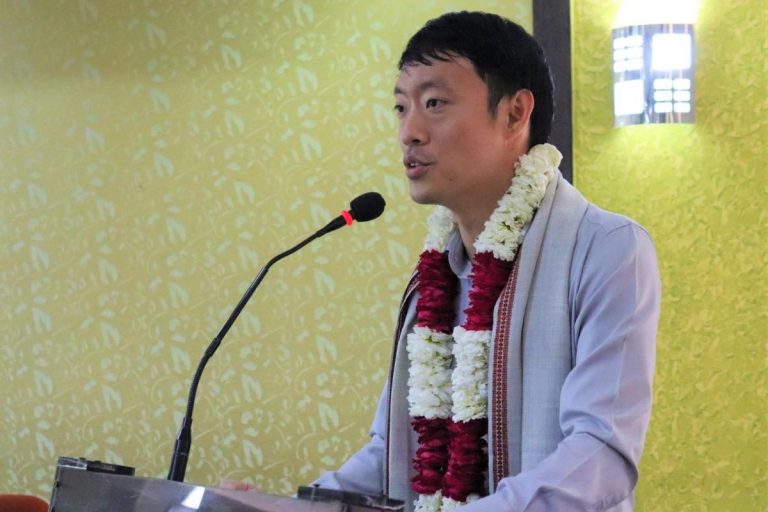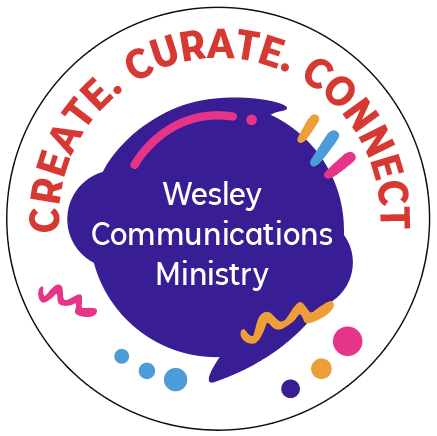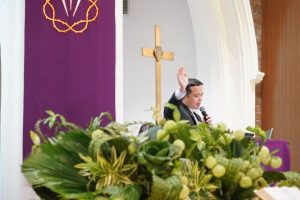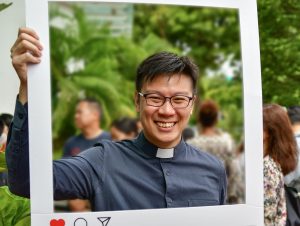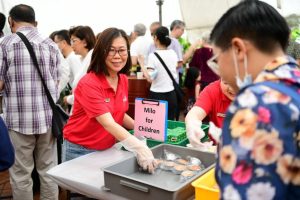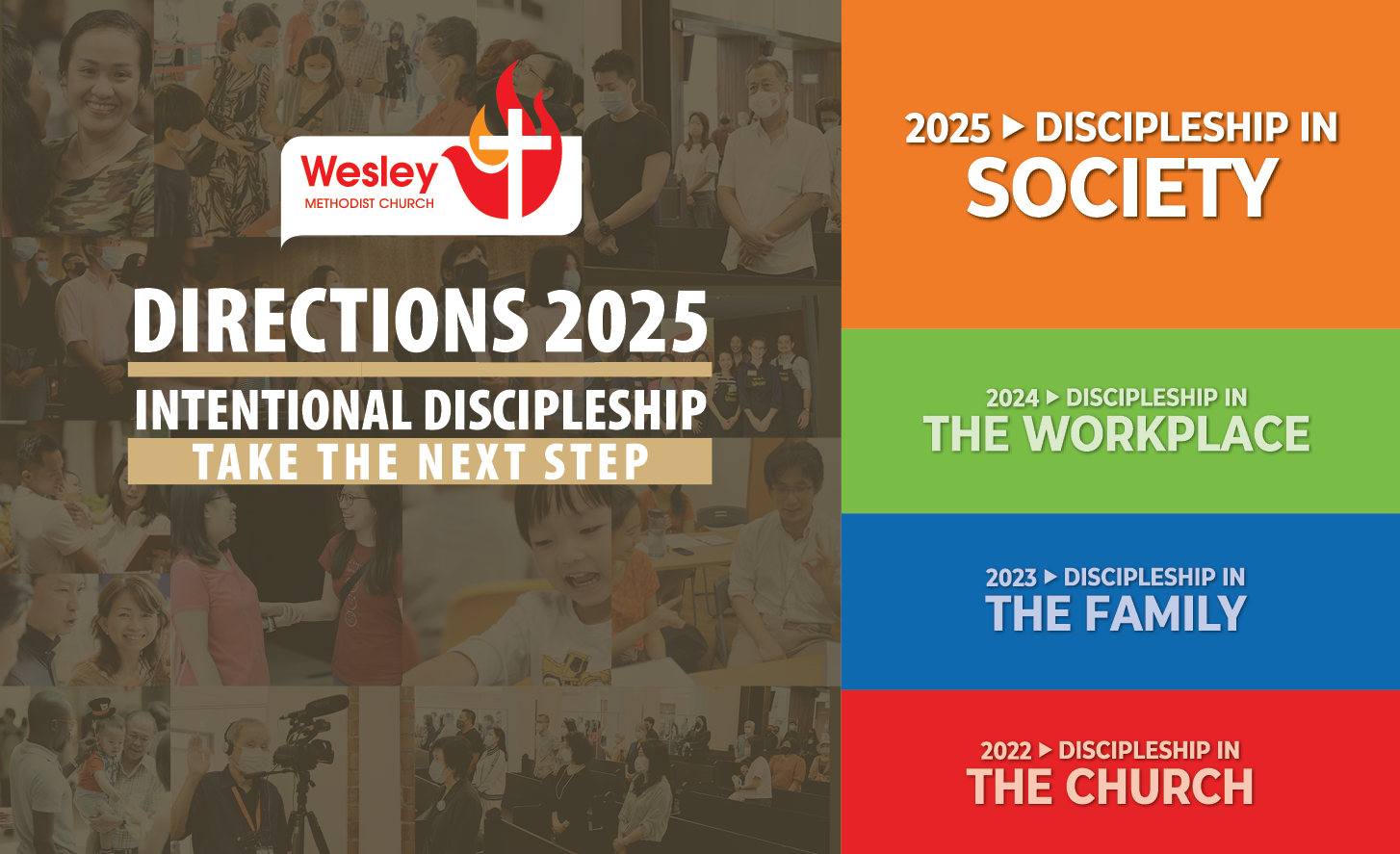In this part of Everyday Christianity: Faith@Work series, TIDINGS spoke to Stephen Chia, a full-time Christian Ministry worker, who has found himself in a myriad of interesting cities and communities along his journey of faith and service. Stephen speaks at least five languages and also holds a graduate diploma in Ancient Near Eastern and Biblical languages from Polis Institute Jerusalem. He has been serving faithfully as a volunteer leader in our 11.30am Wesley Watchers. Stephen works in the Council for World Mission (CWM) as a Project Manager responsible for the Mission Support Programme (MSP).
Tell us your story, Stephen.
I am a second generation Christian and come from a family of four. I have been married for two years to Kung Naruemon, an assistant teacher in Bethesda (Bedok-Tampines) kindergarten. Growing up, I had a keen interest in classical music and tennis, being a school pianist in secondary school and playing tennis for my secondary school and junior college. Since I was young, my parents brought the whole family to worship at an independent, non-denominational church. These were foundational pillars in my life and provided me the safe space and nurturing during my early years.
I attended a local Anglican mission school in my secondary school days, and completed a bachelor’s degree in Linguistics and Multilingual Studies on a full scholarship from Nanyang Technological University (NTU). During that time, I spent a year studying in Sweden and Finland on exchange programmes, during which I learnt much about their state churches such as the Evangelical Lutheran Church. Most of my summer vacations were spent volunteering in one of the Wycliffe translation centres in Southeast Asia. The volunteer work quickly turned into research, and I wrote a sketch grammar on aspects of the Ngeq language as my honours thesis.
After NTU, I pursued a graduate diploma in Koine Greek, biblical Hebrew and Palestinian Arabic on a full scholarship in Polis Institute, Jerusalem. This was a crucial period in my life, as Jerusalem was a difficult place to live in and I had the chance to become intimately acquainted with Catholicism, Eastern and Oriental Orthodoxy, Rabbinic and Messianic Judaism, all of which greatly value-added to my understanding of Christianity, Judaism, the bible and the Holy Land. After my studies, I became a full-time volunteer with Wycliffe Bible Translators, based in a certain location and working on a translation and literacy project with tribal minorities from a closed-access nation.
Where do you work now and what does your ministry work entail?
I moved back to Singapore in 2018. In my current workplace, the Council for World Mission, I often travel to attend consultations with our member churches, discuss and review proposals, brief them on project implementation and reporting guidelines, find solutions to problems, engage new leadership and attend their special events.
How did you come to know the Lord?
Even though I was born into a Christian family and do not have any known dramatic conversion experience to my name, my journey to the cross was a long one. I loved to explore and ask questions to understand how things worked. It wasn’t long before I started to explore other religions, study them and ask many questions. Someone once told me, “God doesn’t have grandchildren; only children” and I recognised from early on that there was an individual and personal component to faith. I read extensively about Christianity at a young age, along with studying parts of the Koran and other religious texts and doctrines. I was always willing to go where the truth took me, and this was the start of an ongoing journey of understanding Christianity and the world.
Please share with us what are some of your hobbies?
In my free time, I enjoy running and playing tennis, watching movies, listening to music, attending concerts, travelling, photography, reading up on theology and spending time with friends.
What challenges did you face in pursuing your vocation?
I faced significant obstacles and challenges in the mission field, which included but not limited to visa challenges and many spiritual oppositions etc. As a youth and young adult back then, plenty of Christian advice was offered to me, some unsolicited and most of them confusing and contradictory. I only realised on hindsight that all of these were necessary for God to teach me many lessons and build up my resilience.
Today, by the grace and provision of God I continue down the less-trodden path with my unorthodox life choices, which often takes me to countries unheard of but which I believe God has prepared for someone with a nature like mine. Sometimes I wrestle with God and at other times we take nice, leisurely strolls. In the well-known hymn “God Hath Not Promised”, we are reminded that God did not promise us an easy or comfortable life. Looking back at my journey so far, God has always been there as an influence in major life decisions, a provider of all my needs and the bringer of love, comfort and much more.
Your various roles in the workplace have been predominantly in Christian environments. Please share with us how you lived out your life as a Christian in the secular domains of your life.
I have many non-believing friends and relatives, including my in-laws and their families and even the pre-believers in my workplace.
Being a Christian can make one look different, especially if our values are misaligned with that of society’s, like not being driven by wealth or status. I find that working for a Christian organisation is a good talking point to talk about my faith, as I am usually asked about my motivations.
Even in a Christian setting, my testimony and conduct are still important as people are at different stages in their faith. Some may be new believers, while others may have fallen away. The greatest test is whether I am able to live out the faith that I profess or preach. While I cannot control the behaviour of others, I can only watch my own and do my best to be salt and light as Jesus taught.
What motivates you to do what you do?
My current role is not only a job but also a calling. Due to the Christian nature of my work, I found it challenging to answer whether I was in ministry or “working in a job”. I am blessed with the opportunity to do “frontline” work where I get to meet many Christians from different countries and backgrounds. At my workplace, the Council for World Mission, we support churches in their own mission projects that aim to address the social and spiritual issues in their communities. I am privileged to witness the significant impact of our work at the grassroots level and how it literally changes the lives of people. Greater than that is the blessing of learning about other cultures and their contextual Christian practices.
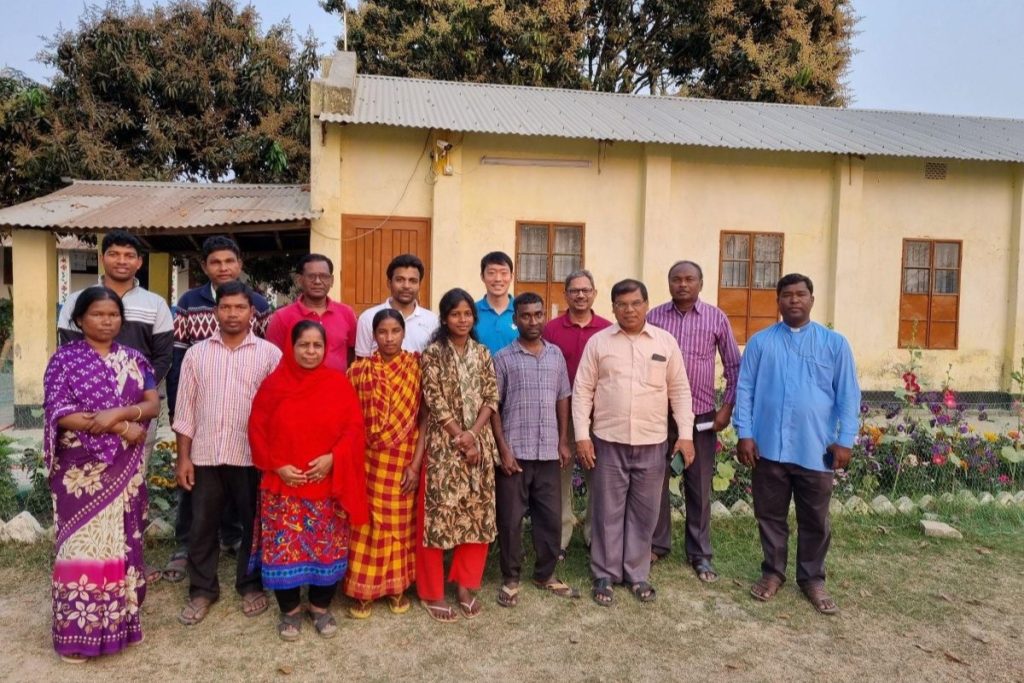
What are your challenges at the workplace?
The major challenges in my work are both internal and external in nature. The internal factors include human factors like processes, red tape, mismatching of skills, personality and ideology clashes, while the external factors mainly relate to the different standards and cultures of our member churches and how we can journey alongside them at their pace while simultaneously upholding international regulations and audit standards. It is important to note here that no group of people (including organisations and churches) is perfect.
These days I hold the mindset that pressure is external in nature (i.e. from people or situations) but stress is internal (when I succumb to pressure). In other words, we ourselves hold the keys to keeping stress away. I often reflect: Do I let myself get easily affected, or do I adopt a resilient mindset?
Tell us what a typical day is like for you.
A typical day in the office includes responding to emails, participating in meetings, conducting planning sessions and attending to various administrative matters. After work, I take Ancient Greek language classes at midnight twice a week and try to exercise three times per week, if time permits. When I travel for work, my schedule does get busier but I will still make time for my language classes.
Do you serve in any community activities or church ministries currently? What are some of the ways you have served in Church ministry?
I am currently the leader of the 11.30am Wesley Watchers. My wife is the assistant leader of our Small Group and also volunteers in Children’s Ministry. Missions has always been close to us, and since we joined Wesley we have been seeking avenues and opportunities to serve in missions in one way or another. Crisis relief and music are other areas of interest to me, but time does not allow for these at the moment. In our service, we have to constantly remind ourselves that quality and attitude are more important than quantity. In this season and beyond, we desire to take steps to gradually be more involved in missions together as a couple and not just serve individually.
In what ways do you share your faith in your community and other spheres of involvement now?
I currently try to focus on the “small little mission fields” in my life, knowing that I can be in charge of much if I am to be found faithful with the little I am entrusted with.
Explaining to others what I do has provided many opportunities to share my faith with my relatives in practical terms. A lot of the work I do has social impact, making it easy for them to understand. Our collective witness as a Christian family also demonstrates our faith to a certain extent. I find it easier to speak openly about religion with younger people, while older ones tend to observe our lives and behaviour more.
My next biggest mission field is my in-law’s family and community who are mainly not believers. As we do not live in the same country, I take an interest in their lives by having regular video calls with them and praying for them. Through our way of life, we acquaint them with bits and pieces of the Christian faith.
What are your views towards work and rest? Sabbath – Do you keep a rhythm incorporating regular Sabbath once a week? How do you keep your sabbath and find rest in God as you work and help in ministry work?
I believe in a balanced lifestyle that incorporates healthy amounts of work, sleep, food, exercise and spiritual nourishment. Each of these is connected to the other and crucial to the proper functioning of our body, mind and spirit. For example, if I do not take care of my own body and keep myself healthy as much as possible, how can I work for the Lord fruitfully? I learnt a lot from the orthodox Jews during my time in Jerusalem. Though their practice of the Sabbath may seem stilted and legalistic, they understand the spirit of the Sabbath better than the average Christian. Though some of us may laugh at them, I believe that they truly reap the intended benefits of the Sabbath while we slog on in our tiring, fast-paced societies.
Personally, I am convinced of the importance of regular Sabbath rest. Though my Sabbath rest may not always come in the form of a distinct 24-hour period each week due to serving on Sundays or travelling overseas for work, I will still try my best to find time to wind down during weekends. In reality this can be tricky, as we may be busier in certain seasons. I manage this by putting the necessary effort into finding and entering this rest (Hebrews 4:11).
How do you balance your family, work, personal life and serving in ministry?
I have always found it difficult to balance these aspects, especially living in a place like Singapore. Our time is limited and precious, which means that something eventually has to be sacrificed. Being overly focused on ministry can result in neglecting one’s family, while too much time at work may affect our spiritual lives. I find prioritising my activities to be a helpful way to manage. In principle, God should be the greatest priority, followed by my family and then work. However, reality often paints a different picture.
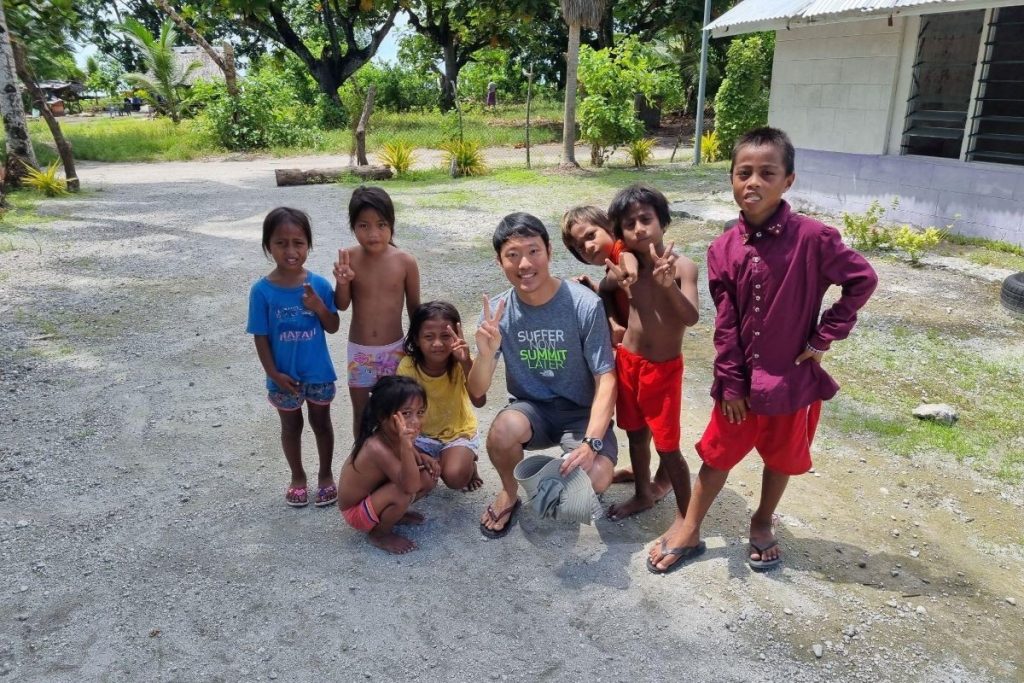
How do you cope with stress from your multiple commitments?
Self-care is a good preventative measure against work-related stress. Apart from praying for wisdom, I enjoy doing vigorous exercise, eating some comfort food or doing some window shopping to relax my mind. I also keep meticulous to-do lists and channel all my energy to being focused on my work itself instead of workplace politics, for example.
When it comes to serving in ministry, I utilise running principles like pacing myself and listening to my “body” to ensure I can complete this long-distance race and not pause, get injured or quit halfway. Though I have the desire to serve in multiple ministries, I have decided to be involved in not more than two so as to be able to give my best effort and not just the remainder of my time.
How do you view success in today’s world?
As I shared in a speech in Thailand recently, the world’s success is measured in achievements, material wealth, fame and so on. As Christians, our success comes in many other forms, such as a warm and supportive Christian family, a solid church community, safe spaces with close friends, food on the table and a roof over our heads.
If we look at this from a heavenly or spiritual perspective, we would do good to focus on the things of eternal worth while at the same time being God’s witnesses through our lives, conduct and service to society. Finally, the Bible reminds us that life is not a competition but rather a race in which every one who perseveres and completes it will win an everlasting prize.
Where and how have you seen God’s handprints in your life so far?
When I look back, I see clearly God’s divine arrangement of timings, opportunities and circumstances in some of my life situations. For instance, in His perfect timing God had closed several doors in 2018, which led me to move back to Singapore. He provided me with a job shortly after where I was able to grow and develop many aspects of my personal and professional life to where I am today. God’s handprints and footprints have been especially clear in the seasons of life where I had to take very big leaps of faith in decision-making. I am very much a work-in-progress, and I am grateful to Wesley for the numerous ministries, resources, teachings and programmes made available for me to learn and grow. Because I have been given a stronger spiritual foundation growing up at Wesley, I am now able to contribute my time and skills towards the development of the Council of World Mission member churches I work with around the world.
Photos courtesy of Stephen Chia
Read also: ‘The more I know about the complexities of the human body, the more I appreciate the intelligent design and mortality of humankind’: An Interview with Dr Lennard Chan‘; God is the master programmer and engineer of the universe’: An Interview with Vincent Hong, Engineer‘
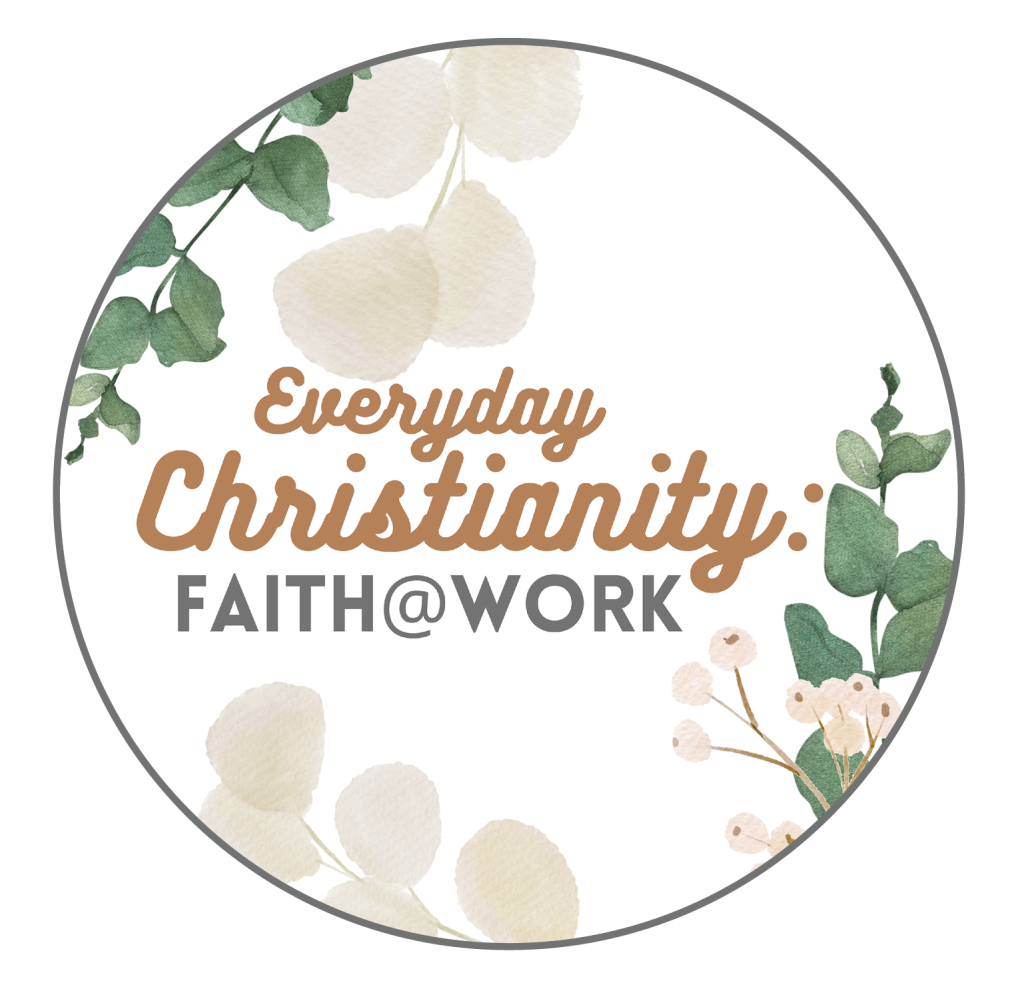
Everyday Christianity: Faith@Work is an interview series with Wesleyans from diverse age groups and walks of life. In this series, published in conjunction with our church’s theme for 2024 – Directions 2024: Discipleship in the Workplace , we hope to discover more about the perspectives of Wesleyans in different vocations on how they live out their faith every day, specifically in their workplaces, homes, or communities where they serve. More than just stories of success in victory, we also want to hear their stories of perseverance that point to the reality that our Father is a living God who is ever present in the mountain peaks and valley lows of our everyday lives. For more on Workplace Conversations, please listen to our podcasts by Rev Raymond Fong at Wesley Podcast • A podcast on Spotify for Podcasters .

